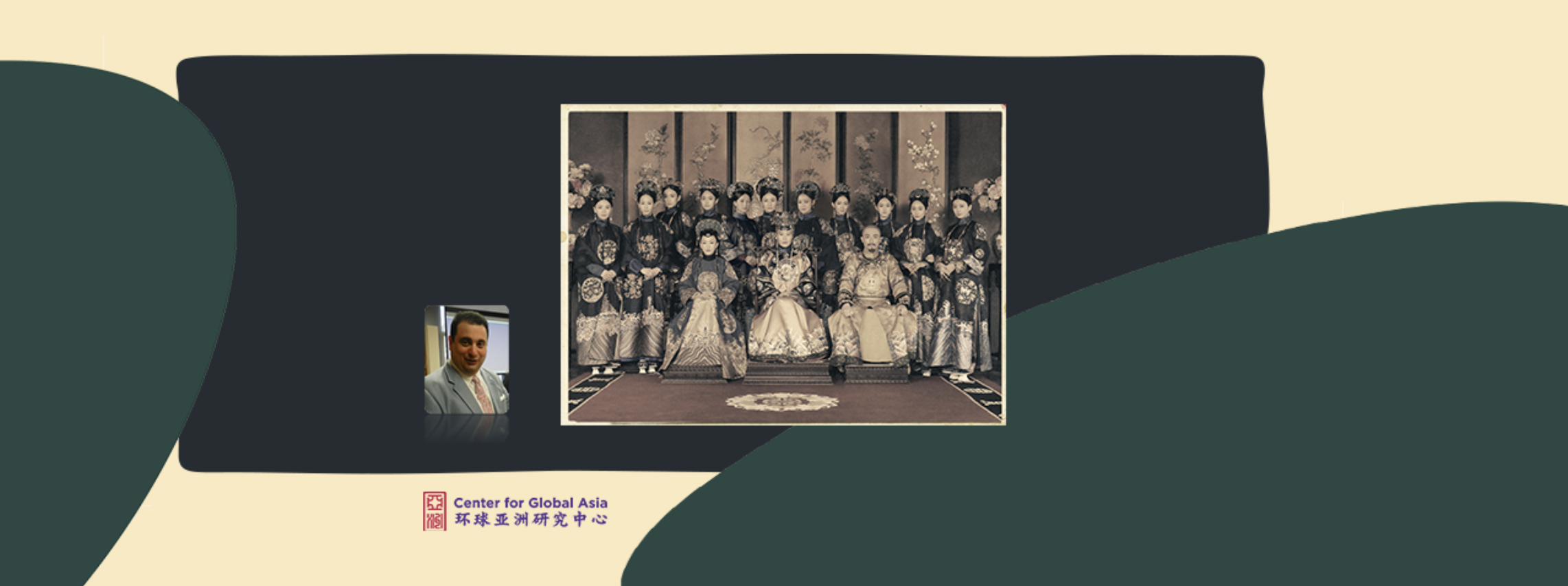CONTACT US
Email: shanghai.cga@nyu.edu
Phone Number: +86 (21) 20595043
WeChat: NYUShanghaiCGA
Address:
Room W822, 567 West Yangsi Road,
Pudong New Area, Shanghai, China

© 2024 All Rights Reserved

Venue: Room 101, 1555 Century Avenue, NYU Shanghai
Date: Thursday, December 13, 2018
Time: 17:30 - 19:00 CST
As early as the Bronze Age, a pattern that would go on to characterize Chinese society for millennia had already taken hold: polygyny at the top of the social pyramid; and competition for women, frequently leading to violence, at the bottom. Many aspects of sexuality in ancient China become comprehensible if one always bears this fact in mind. Pure arithmetic makes it impossible for all men in a society to engage in polygyny, and thus one can use the number of women sexually available to a man as a rough but telling index of his social standing. For the overwhelming majority of males, this number would have been 0 or 1—but even those with one wife might have considered themselves fortunate. One of the most important milestones in a man’s life would have been attaining the requisite wealth and stability to support a wife; the thousands, if not millions, of males who could never afford a family had little to lose and became a permanent source of social unrest. It stands to reason that almost all healthy females were married at least once during their lifetimes, typically at an early age—either as wives, if their families were relatively prosperous, or as concubines, if their families needed the cash that would be offered for them.
Paul R. Goldin (Ph.D., Harvard University, 1996) is Professor of East Asian Languages & Civilizations at the University of Pennsylvania, where he has taught since 1996. His main area of research is Warring States China (5th to 3rd centuries B.C.). Although his focus is intellectual and cultural history, the study of this period is necessarily interdisciplinary, and his work also involves archaeology, art history, literature, philosophy, and religion. He is the author of more than two dozen articles and several books including The Culture of Sex in Ancient China (Hawaii, 2002), After Confucius: Studies in Early Chinese Philosophy (Hawaii, 2005), and Confucianism (California & Acumen, 2011; rpt., Routledge, 2014).
Introduction and moderation of the Q&A by Zhao Lu, Assistant Professor of Global China Studies, NYU Shanghai; Global Network Assistant Professor, NYU.
This event is cosponsored by the Center for Global Asia and the Global China Studies Program, NYU Shanghai.
To our visitors:
• RSVP may be required for this event. Please check event details
• Visitors will need to present a photo ID at the entrance
• There is no public parking on campus
• Entrance only through the South Lobby (1555 Century Avenue)
• Taxi card
• Metro: Century Avenue Station, Metro Lines 2/4/6/9 Exit 6 in location B
• Bus: Century Avenue at Pudian Road, Bus Lines 169/987
Email: shanghai.cga@nyu.edu
Phone Number: +86 (21) 20595043
WeChat: NYUShanghaiCGA
Address:
Room W822, 567 West Yangsi Road,
Pudong New Area, Shanghai, China

© 2024 All Rights Reserved